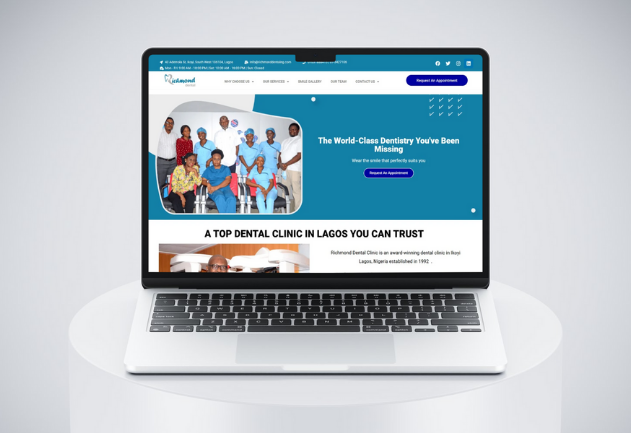SEO Company in Lagos | 80% Business Retention | Osoria Digital
OSORIA DIGITAL Client Case Studies
Osoria Digital’s growing collection of SEO, PPC and Website Design case studies.
Discover how we are able to consistently drive big-time results for our clients.

1008% Increase in Targeted Organic Traffic
A premier clinic in Lagos, struggled with low online visibility and poor search rankings despite offering premium dental services. With limited organic traffic, attracting new patients was a challenge. Osoria Digital’s website redesign and tailored SEO strategy boosted their local search rankings, expanded their patient base, and cemented their position as a leading dental clinic in Lagos.

217% Increase in Organic Revenue
- msbm.org.uk/nigeria/
At Osoria Digital, we deliver results, and our work with Metropolitan School of Business and Management (MSBM) UK proves it. As a leading EdTech platform, MSBM offers UK-standard higher education across Asia, the Middle East, and Africa but needed better visibility in Nigeria. We stepped in with a powerful SEO strategy, boosting their search rankings and connecting them with more students. This collaboration showcases the power of strategic digital marketing in driving real impact.

15,000+ High-Value Keywords Ranked on Google’s First Page
A leading Nigerian eCommerce platform, known for its vast product catalog spanning electronics, fashion, phones, tablets, and household essentials, faced a critical challenge. Despite its industry dominance and millions of users nationwide, maintaining a competitive edge in organic search rankings and scaling traffic across multiple categories became increasingly difficult. That’s where Osoria Digital stepped in—implementing a data-driven SEO strategy to drive sustainable growth and reclaim its market leadership.

How Osoria Digital Boosted Bookings by 145% in Just 17 Days!
A luxury shortlet apartment agency in Lekki partnered with Osoria Digital to transform their underperforming PPC campaign — and the results were jaw-dropping. With laser-focused targeting, irresistible ad copy, and data-driven optimization, we smashed the 2,000-click goal and drove a 145% surge in bookings. All in just 17 days!

27 Years of Trust, Now Just a Click Away
- richmonddentalng.com
Richmond Dental Clinic has been a trusted name in premium dental care in Ikoyi, Lagos for over 27 years—offering world-class treatment in a warm, welcoming environment. When it came time to redesign their website, Osoria Digital knew it had to reflect the same standard of excellence, comfort, and trust the clinic is known for. We created a sleek, modern, and patient-friendly digital experience that makes it effortless for visitors to explore services, connect with the clinic, and book appointments with confidence. From general checkups to advanced procedures like Invisalign and dental implants, the new website is designed to convert interest into action—helping Richmond Dental Clinic continue doing what it does best: putting beautiful, healthy smiles on faces across Lagos.

1,114% Boost in Organic Traffic
- bibiapampa.info
When Bibi Apampa—Nigeria’s most trusted retirement consultant—realized her outdated website was holding her back, she turned to Osoria Digital for a complete transformation. What followed was a strategic overhaul that reimagined her online presence from the ground up. We didn’t just give her a beautiful website—we engineered a high-converting, SEO-dominant digital hub that amplified her voice, magnetized her ideal audience, and drove over 1,144% growth in traffic and 1,501% more leads in just 12 months. From clunky mobile design to seamless UX, from SEO black holes to front-page domination—this is what happens when smart strategy meets powerful execution. Ready to be next?
Turning Luxury Into Leads: A Digital Makeover for Oak and Teak Interiors
Oak and Teak Interiors, a trailblazer in luxury interior design across Nigeria and beyond, needed a website as refined and performance-driven as their bespoke spaces—and Osoria Digital delivered. With conversion at the heart of the project, we crafted a sleek, user-friendly platform that not only showcases their exceptional portfolio but also turns visitors into high-value clients. The new oakandteak.com seamlessly blends elegance with functionality, perfectly reflecting Oak and Teak’s commitment to craftsmanship, innovation, and world-class interior design.
Projects Completed:
- Web/UI Design
- Web Development
- Search Engine Optimization
- Website Copywriting




